
Uniform Civil Code marks the state of equality in the country, meaning that every section of the society is treated alike, concerning the national civil code, without any discrepancy for any religion.
Many societal aspects are covered in this broad umbrella. They include areas like marriage, maintenance, adoption, divorce, inheritance, property succession, and many others. The provision of a uniform civil code is one among the many promises made by the current ruling party of India, which is the Bharatiya Janata Party.
Article 44 of the Indian Constitution states that “the State shall endeavor to secure for the citizens a uniform civil code (UCC) throughout the territory of India.” The desirability of a uniform civil code is consistent with human rights and the principles of equality, fairness, and justice.
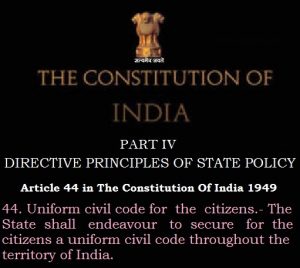
After the revocation of Article 370, the central family law Acts were extended to Jammu and Kashmir. Although this is another step towards implementing UCC throughout India, still a long distance is to be covered in this pursuit.
What Is UCC ?
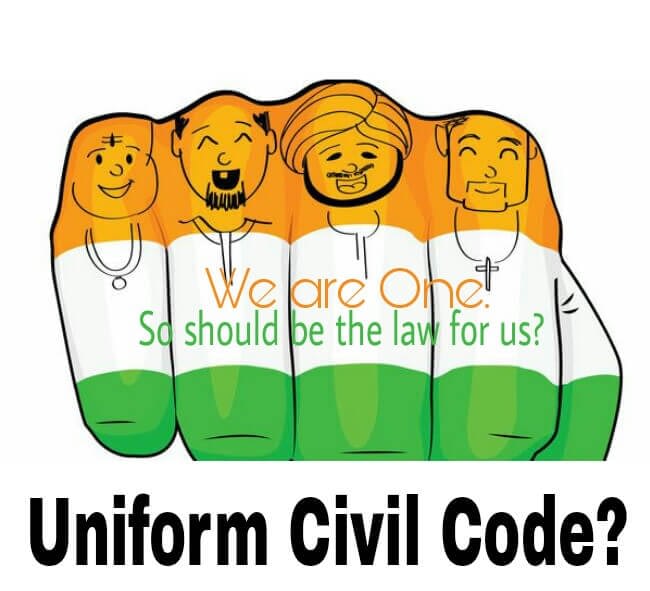
The Uniform Civil Code (UCC) calls for the formulation of one law for India, which would be applicable to all religious communities in matters such as marriage, divorce, inheritance, adoption.
The code comes under Article 44 of the Constitution, which lays down that the state shall endeavor to secure a Uniform Civil Code for the citizens throughout the territory of India.
- Indian laws do follow a uniform code in most civil matters such as the Indian Contract Act 1872, Civil Procedure Code, Transfer of Property Act 1882, Partnership Act 1932, Evidence Act, 1872, etc. States, however, have made hundreds of amendments and, therefore, in certain matters, there is diversity even under these secular civil laws. Recently, several states refused to be governed by the uniform Motor Vehicles Act, 2019.
Background Of Uniform Civil Code

The origin of the UCC dates back to colonial India when the British government submitted its report in 1835 stressing the need for uniformity in the codification of Indian law relating to crimes, evidence, and contracts, specifically recommending that personal laws of Hindus and Muslims be kept outside such codification.
An increase in legislation dealing with personal issues in the far end of British rule forced the government to form the B N Rau Committee to codify Hindu law in 1941.
Based on these recommendations, a bill was then adopted in 1956 as the Hindu Succession Act to amend and codify the law relating to intestate or unwilled succession, among Hindus, Buddhists, Jains, and Sikhs.
However, there were separate personal laws for Muslims, Christian, and Parsis.
In order to bring uniformity, the courts have often said in their judgments that the government should move towards a uniform civil code.
The judgment in the Shah Bano case is well known. A case that is very intricately connected with the uniform civil code is the Shah Bano case, in the year 1985. Shah Bano, a woman 73years of age was a divorcee. Her husband used the triple talaq method. Apart from the divorce at such an age, she was also denied maintenance. When she moved to court, all the judgments came in her favor, and the demand for a uniform civil code strengthened even the courts have made the same point in several other major judgments.
By arguing that practices such as triple talaq and polygamy impact adversely on the right of women to a life of dignity, the Centre has raised the question of whether constitutional protection given to religious practices should extend even to those that are not in compliance with fundamental rights.
UCC And Implications

Protection To Vulnerable Section Of Society :
- The UCC aims to provide protection to vulnerable sections as envisaged by Ambedkar including women and religious minorities, while also promoting nationalistic fervour through unity.
Simplification Of Laws :
The code will simplify the complex laws around marriage ceremonies, inheritance, succession, adoptions making them one for all. The same civil law will then be applicable to all citizens irrespective of their faith.
When enacted the code will work to simplify laws that are segregated at present on the basis of religious beliefs like the Hindu code bill, Sharia law, and others.
Adhering To Ideal Of Secularism:
- Secularism is the objective enshrined in the Preamble, a secular republic needs a common law for all citizens rather than differentiated rules based on religious practices.
Gender Justice:
- India has separate sets of personal laws for each religion governing marriages, divorce, succession, adoption and maintenance. Islamic law prescribes that generally, a man’s share of the inheritance is double that of a woman in the same degree of relationship to the deceased. Under Muslim law, the father is the sole guardian of the person and property of his minor child.
Ensuring Equality:
Presently, in India, different communities are governed by different Personal laws like Hindu Marriage Act 1955, Hindu Succession Act 1956, Hindu Adoption and Maintenance Act 1956 & Hindu Minority & Guardianship Act (1956). Similarly, Muslims, Parsis, and Christians are governed by their own personal laws.
Even within a religion, there is not a single common personal law governing all its members. E.g. for the registration of marriage among Muslims, laws differs from place to place. It was compulsory in J&K (1981 Act) and is optional in Bengal, Bihar (both under the 1876 Act).
It can be argued that the Personal Law system violates the principle of equality of the Constitution. Also, the Uniform Civil Code will act as a means to achieve clarity, simplicity, and intelligibility in personal laws.
Supreme Court in Indian Young Lawyers Association Vs. the State of Kerala (2018) stated that personal/customary law comes under the ambit of Article 13. Nobody of practices can claim supremacy over the Constitution and its vision of ensuring the sanctity of dignity, liberty, and equality.
Freedom Of Choice:
A religion-neutral personal law would encourage the protection of couples in case of inter-caste and inter-religious marriages. Even Acts like the Special Marriage Act, 1954 permit any citizen to have a civil marriage outside the realm of any specific religious personal law.
If a uniform civil code is enacted, all personal laws will cease to exist. It will do away with gender biases in Muslim law, Hindu law, and Christian law that have been often challenged by women on the ground that they violate the right to equality.
Challenges To UCC
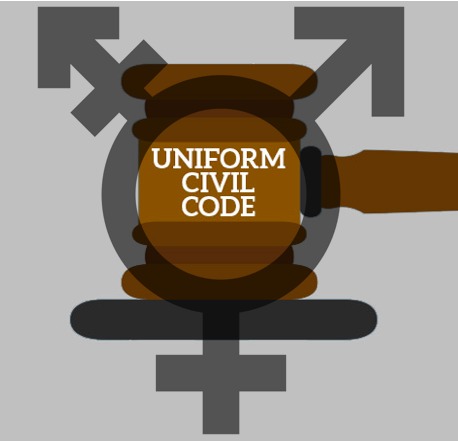
Exceptions in Central Family Laws: The preliminary sections in all central family law Acts enacted by Parliament since Independence declare that they will apply to “the whole of India except the state of Jammu and Kashmir.”
A Second exception was added in 1968 in all these Acts, pronouncing that “nothing herein contained shall apply to the Renoncants in the Union Territory of Pondicherry.”
A third exception, none of these Acts applies in Goa, Daman, and Diu.
A fourth exception, relating to the north-eastern states of Nagaland and Mizoram, emanates from Articles 371A and 371G of the Constitution, decreeing that no parliamentary legislation will replace the customary law and religion-based system for its administration.
Communal Politics:
- The demand for a uniform civil code has been framed in the context of communal politics. A large section of society sees it as majoritarianism under the garb of social reform.
Constitutional Hurdle:
Article 25 of Indian constitution, that seeks to preserve the freedom to practise and propagate any religion gets into conflict with the concepts of equality enshrined under Article 14 of indian Constitution.
Issues Related To UCC

Indian Secularism:
- The Supreme Court in T.M.A Pai Foundation v. the State of Karnataka reiterated that the essence of secularism in India is recognition and preservation of the different types of people, with diverse languages and different beliefs, and placing them together so as to form a whole united India. The idea of UCC might not be in consonance with the spirit of Indian secularism where multiple individual identities co-exist under the umbrella of the national identity.
Issue Of Drafting The UCC:
- One of the biggest obstacles in implementing the UCC, apart from obtaining a consensus, is the drafting. There is no guideline or a vision document, whether UCC is a blend of all the personal laws or a new and common law adhering to the constitutional mandate.
Concerns Of Minorities:
- They are impediments to the adoption of the UCC when it comes to addressing Minority concerns, such as separatism, conservatism, and misconceived notions about personal laws. Most minorities feel a sense of insecurity, complete loss of identity and marginalization within Indian society, and imposition of a majoritarian outlook on minority religions if UCC comes into play.
Way Forward
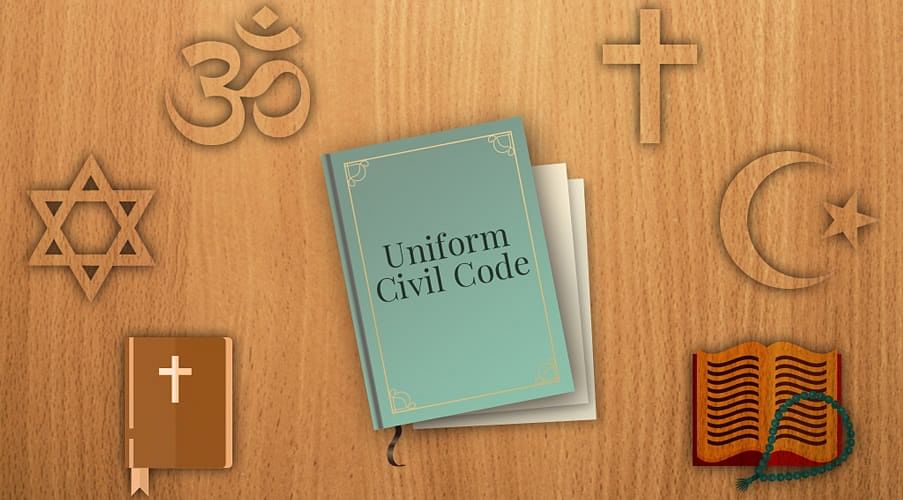
Collaborative Approach:
- The government and society will have to work hard to build trust, but more importantly, make common cause with social reformers rather than religious conservatives.
Brick By Brick Approach:
- Rather than an omnibus approach, the government could bring separate aspects such as marriage, adoption, succession, and maintenance into a uniform civil code in stages.
Gender-Sensitive Approach:
- The government would also do well to complement the overdue move towards a uniform civil code with a comprehensive review of several other laws in the context of gender justice.
Pan-India Approach:
- Bringing Jammu and Kashmir into the country’s mainstream of family laws is an exercise that needs to be undertaken also for Goa, Daman and Diu, Puducherry, Nagaland and Mizoram.
Uniform Civil Code Bill
A Bill on the voluntary Uniform Civil Code is ready to be introduced in the session of Parliament, the moment such code is made optional, it ceased to be uniform. The government would do well to take immediate steps to codify each set of personal laws instead of framing such optional civil code.
Personal laws relating to marriage, divorce, minority, guardianship, maintenance, and succession are covered by this bill. The passing of this bill will repeal the Special Marriage Act, 1954. The proposal relating to the consolidation of the Indian Divorce Act and the Indian Christian Marriage Act into one statute on the analogy of the Hindu Marriage Act, 1955 has been proposed by the Law Commission and has also suggested certain reforms in the law.
Conclusion
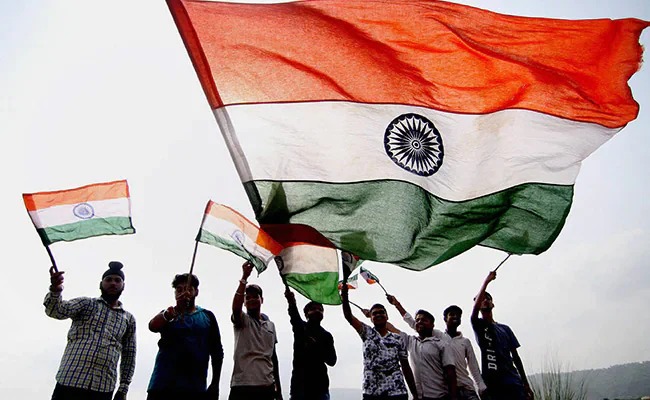
- The citizens’ fundamental rights to equality before the law and equal protection of the laws guaranteed by the Constitution call for a similar action in respect of these territories as well. So does the provision of Article 44 enjoining the state to make endeavours to secure for the citizens a uniform civil code throughout the territory of India. An evaluation survey among different communities to suggest reforms within personal laws on modern, liberal lines and a broad consensus must be drawn to facilitate India’s religious and legal history. Uniform Civil Code must be an amalgamation of the elements from the personal laws based on gender equality, non-discrimination of religion, caste and creed. Laws such as Indian Marriage Act, Indian Divorce Act etc. can then be applicable to every citizen of India irrespective of their religion. There is need for bringing awareness through discussion and deliberations among members of various communities.
Top 13 Interesting Facts
The term Uniform Civil Code, originating from the Sanskrit term Samāna Nāgrika Saṃhitā, is a promise of secularism in India by the Preamble. It is also a source of dispute for many minority communities, including the Muslims, and various other conservative groups of the Indian society
The historical perspective of this code dates back to the debates in the colonial period in the country. In October 1840, the Lex Locireport drew attention to the urgency of making a uniform law concerning crimes, pieces of evidence, and so on.
The condition of women in the colonial period was inadequate. There were several social reformers like Raja Ram Mohan Roy, Ishwar Chandra Vidyasagar, who took essential steps for minimizing the plight of women. The struggle for a uniform civil code had already begun then.
In the post-colonial era, this code became more prominent in the hands of eminent Indian leaders, like Dr. B.R Ambedkar and Jawaharlal Nehru. This code also received the support of many women members of the then parliament.
In India, Goa is the only state to have established this code successfully.
A uniform civil code indicates a modern society and a body of eminent jurists can maintain this code.
History of Uniform Civil Code in Goa – Portuguese during their rule in Goa and Daman & Diu had separately codified local customs of each of these territories. After liberating the territories in 1961 & integrating them into a Union Territory, the Indian government ruled that the Portuguese laws would continue until amended or repealed by a competent authority; among these was the Portuguese civil code, 1867. Under this Code practiced in Goa, a Muslim man whose marriage is registered in the State cannot practice polygamy, a married couple shares property equally, pre-nuptial agreements are the order of the day & assets are divided equally between the man and woman on divorce.
In 2018, the Law Commission of India opined that the Uniform Civil Code is “neither necessary nor desirable at this stage” in the country. The Commission said secularism cannot be contradictory to plurality. It only ensures the peaceful co-existence of cultural differences.
Under the Hindu law, the Mitakshara branch of law denied to a Hindu daughter a right by birth in the joint family estate and this flowed logically from the fact that her place in the paternal family was only temporary as she belonged to her husband’s family on marriage
In 1941, BN Rau Committee recommended a codified Hindu law, which would give equal rights to women in keeping with the modern trends of society
“uniform civil code is applicable to all, regardless of religion except while protecting certain limited rights”. 21st Law Commission also submitted a consultation paper on Reforms in Family Laws in India.
Litigation would decrease due to personal law. There would be arousal of sense of oneness and the national spirit and There would be a new phase of the country with new force and power which would aid to face any odds after finally defeating the communal forces. The instances of such oneness and integrity are Israel, Japan, Russia, and France.
- A Uniform civil code means that every citizen, irrespective of religion, will have the same laws in respect of criminal and non-criminal matters. It also means the end of religion-based laws to govern the people.

Click the button below to know our writer opinion:






